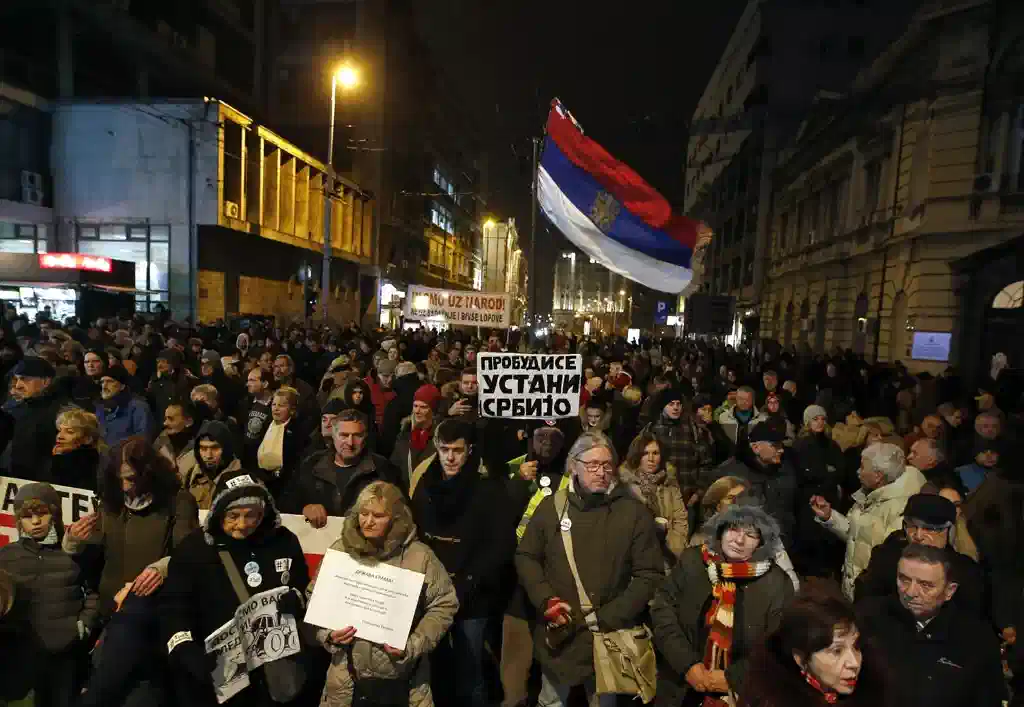
Amid massive anti-government demonstrations in Belgrade, allegations have surfaced accusing Serbian authorities of deploying sonic weapons against protesters, a claim that officials vehemently deny.
Massive Protests Erupt in Belgrade
Belgrade recently witnessed one of the largest anti-government demonstrations in Serbia's history, with over 100,000 citizens rallying against President Aleksandar Vučić's administration. The protests, primarily driven by allegations of governmental corruption and negligence, were ignited by a tragic incident in November when a train station canopy collapsed in Novi Sad, resulting in 15 fatalities. This event intensified public scrutiny over infrastructure safety and governmental accountability.
Allegations of Sonic Weapon Deployment
In the aftermath of the protests, opposition figures and human rights organizations have accused Serbian security forces of employing military-grade sonic weapons to disperse the crowds. These devices, known for emitting targeted sound beams capable of temporarily incapacitating individuals, are widely prohibited for use against civilians. Protesters reported experiencing disorienting sounds that led to panic and brief stampedes during the rally. Footage from the event captures moments of chaos as attendees reacted to these auditory disturbances.
Official Denials and Conflicting Reports
Serbian authorities have firmly denied the allegations of deploying sonic weapons during the protests. The Ministry of the Interior acknowledged the possession of such devices but refuted claims of their use against demonstrators. Officials described the accusations as unfounded and called for legal action against those disseminating what they termed as disinformation. Despite these denials, many protesters reported symptoms consistent with exposure to sonic devices, including headaches and nausea.
Legal Actions and Human Rights Concerns
In response to the alleged use of sonic weapons, opposition leaders and human rights groups have announced plans to file lawsuits with the European Court of Human Rights and local judicial bodies. They argue that deploying such devices against peaceful protesters constitutes a severe violation of human rights and international law. The Belgrade Centre for Security Policy criticized the purported use of prohibited weapons against civilians, emphasizing the need for accountability and transparency in governmental actions.
Broader Implications and International Reactions
The allegations have sparked widespread concern both domestically and internationally. The incident has further polarized Serbian society, with citizens divided over the government's handling of the protests and the opposition's claims. International observers are closely monitoring the situation, as the use of sonic weapons against civilians could have significant implications for Serbia's human rights record and its aspirations for European Union membership. The European Union and other international bodies have urged Serbian authorities to conduct a thorough and impartial investigation into the allegations to uphold democratic principles and protect citizens' rights.
Conclusion
The recent anti-government protests in Serbia have brought to light serious allegations concerning the use of sonic weapons against civilians. While authorities deny these claims, the reported experiences of protesters and the planned legal actions underscore the need for a transparent investigation. The outcome of this controversy will likely have lasting effects on Serbia's political landscape, its international standing, and the ongoing struggle between governmental authority and civil liberties.